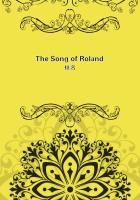The Irish party in the Parliament of Union is just large enough to prevent the English education being indefinitely Protestant, and just small enough to prevent the Irish education being definitely Catholic.
Here we have a state of things which no man in his senses would ever dream of wishing to continue if he had not been bewitched by the sentimentalism of the mere word "union."This example of union, however, is not the example which I propose to take of the ingrained futility and deception underlying all the assumptions of the modern practical politician.
I wish to speak especially of another and much more general delusion.
It pervades the minds and speeches of all the practical men of all parties;and it is a childish blunder built upon a single false metaphor.
I refer to the universal modern talk about young nations and new nations;about America being young, about New Zealand being new. The whole thing is a trick of words. America is not young, New Zealand is not new.
It is a very discussable question whether they are not both much older than England or Ireland.
Of course we may use the metaphor of youth about America or the colonies, if we use it strictly as implying only a recent origin.
But if we use it (as we do use it) as implying vigour, or vivacity, or crudity, or inexperience, or hope, or a long life before them or any of the romantic attributes of youth, then it is surely as clear as daylight that we are duped by a stale figure of speech.
We can easily see the matter clearly by applying it to any other institution parallel to the institution of an independent nationality.
If a club called "The Milk and Soda League" (let us say)was set up yesterday, as I have no doubt it was, then, of course, "The Milk and Soda League" is a young club in the sense that it was set up yesterday, but in no other sense. It may consist entirely of moribund old gentlemen. It may be moribund itself.
We may call it a young club, in the light of the fact that it was founded yesterday. We may also call it a very old club in the light of the fact that it will most probably go bankrupt to-morrow.
All this appears very obvious when we put it in this form.
Any one who adopted the young-community delusion with regard to a bank or a butcher's shop would be sent to an asylum.
But the whole modern political notion that America and the colonies must be very vigorous because they are very new, rests upon no better foundation. That America was founded long after England does not make it even in the faintest degree more probable that America will not perish a long time before England.
That England existed before her colonies does not make it any the less likely that she will exist after her colonies. And when we look at the actual history of the world, we find that great European nations almost invariably have survived the vitality of their colonies.
When we look at the actual history of the world, we find, that if there is a thing that is born old and dies young, it is a colony.
The Greek colonies went to pieces long before the Greek civilization.
The Spanish colonies have gone to pieces long before the nation of Spain--nor does there seem to be any reason to doubt the possibility or even the probability of the conclusion that the colonial civilization, which owes its origin to England, will be much briefer and much less vigorous than the civilization of England itself. The English nation will still be going the way of all European nations when the Anglo-Saxon race has gone the way of all fads. Now, of course, the interesting question is, have we, in the case of America and the colonies, any real evidence of a moral and intellectual youth as opposed to the indisputable triviality of a merely chronological youth?
Consciously or unconsciously, we know that we have no such evidence, and consciously or unconsciously, therefore, we proceed to make it up.
Of this pure and placid invention, a good example, for instance, can be found in a recent poem of Mr. Rudyard Kipling's. Speaking of the English people and the South African War Mr. Kipling says that "we fawned on the younger nations for the men that could shoot and ride."Some people considered this sentence insulting. All that I am concerned with at present is the evident fact that it is not true.
The colonies provided very useful volunteer troops, but they did not provide the best troops, nor achieve the most successful exploits.
The best work in the war on the English side was done, as might have been expected, by the best English regiments.
The men who could shoot and ride were not the enthusiastic corn merchants from Melbourne, any more than they were the enthusiastic clerks from Cheapside. The men who could shoot and ride were the men who had been taught to shoot and ride in the discipline of the standing army of a great European power. Of course, the colonials are as brave and athletic as any other average white men.
Of course, they acquitted themselves with reasonable credit.
All I have here to indicate is that, for the purposes of this theory of the new nation, it is necessary to maintain that the colonial forces were more useful or more heroic than the gunners at Colenso or the Fighting Fifth. And of this contention there is not, and never has been, one stick or straw of evidence.
A similar attempt is made, and with even less success, to represent the literature of the colonies as something fresh and vigorous and important.
The imperialist magazines are constantly springing upon us some genius from Queensland or Canada, through whom we are expected to smell the odours of the bush or the prairie. As a matter of fact, any one who is even slightly interested in literature as such (and I, for one, confess that I am only slightly interested in literature as such), will freely admit that the stories of these geniuses smell of nothing but printer's ink, and that not of first-rate quality.
By a great effort of Imperial imagination the generous English people reads into these works a force and a novelty.















